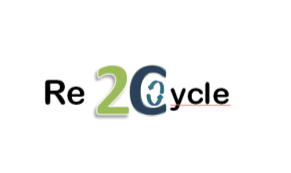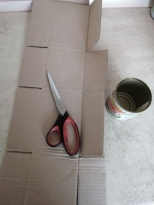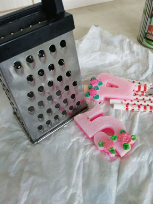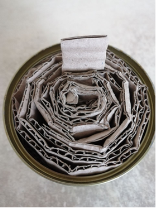Урок англійської мови в 9 класі "The 3 Rs"
ДОНЕЦЬКИЙ ОБЛАСНИЙ ІНСТИТУТ ПІСЛЯДИПЛОМНОЇ ПЕДАГОГІЧНОЇ ОСВІТИ
ФАКУЛЬТЕТ ПІДВИЩЕННЯ КВАЛІФІКАЦІЇ ПЕДАГОГІЧНИХ КАДРІВ
КАФЕДРА СУСПІЛЬНО-ГУМАНІТАРНОЇ ТА МЕДІЙНОЇ ОСВІТИ
ВІДДІЛ МОВНО-ЛІТЕРАТУРНОЇ ТА МИСТЕЦЬКОЇ ОСВІТИ
ЗАТВЕРДЖУЮ
Завідувач кафедри, к.п.н.
________________ Ціко І. Г.
«___»_____________ 2023
ПЛАН-КОНСПЕКТ УРОКУ АНГЛІЙСЬКОЇ МОВИ
У 9 КЛАСІ НА ТЕМУ
«THE ENVIRONMENTAL PROTECTION»
|
Роботу виконав (ла) слухач групи 3.10.5 (1)
|
|
________________Н. О. Честа «22» лютого 2023 |
|
Керівник групи |
|
____________М. В. Мочикіна «___»_____________ __2023 |
|
Рецензент |
|
____________С. Ю. Гарна «___»_____________ __2023 |
Рецензія
________________________________________________________________________________________________________________________________________________________________________________________________________________________________________________________________________________________________________________________________________________________________________________________________________________________________________________________________________________________________
Краматорськ – 2023
Form: 9
Topic: Nature and Weather
Subtopic: Environmental Protection: 3 Rs Rule
Objectives: to make students use the vocabulary on the topic, to develop listening and speaking skills, to teach them function in groups, analyze the material and create a project.
Learning outcomes: At the end of the lesson students can use the vocabulary on the topic, communicate in the productive way and find solutions to environmental issues (how to reduce, reuse and recycle in everyday life).
Methods and techniques: communicative language teaching, cooperative learning, project technology, interactive learning.
Work forms: group, individual.
Integration: Science, Ecology, Crafts, IT
Visual aids: PPP, Jamboard
Procedure
- Lead- in
The students have been working on the topic for several lessons. At the last lesson they were divided into three groups and asked to create a font composition to three words (reduce, reuse, recycle). The teacher demonstrates them.
E.g.

After demonstration the teacher asks to share the ideas (what is implied in every composition). Possible questions: a) What does 2 stand for? b) How do you understand the meaning of arrows?
- Warm-up
Students continue working in groups (breakout rooms) and do an online task:
https://www.liveworksheets.com/ko141359qh
- Pre- listening task
Students work individually, the teacher checks the result from their account.
https://wordwall.net/uk/resource/52888664
- Listening
Students listen to the audio and do the task (ex. 3a, p. 153)
- After-listening task
Students do the task from the textbook (ex. 3b, p. 154)
- Reading and discussion
Students study the scheme on p. 154 and discuss it. Possible questions for discussion: a) How can a fifteen-year old reduce using natural resources? b) How can we reuse things in everyday life? c) How can everybody make the first step to recycling?
- Summary (Exit Ticket)
b.socrative.com/student and enter room name CHESTA

- Setting homework
Students continue working in the same groups. The task is to prepare a presentation (Padlet, Jamboard) on reducing (group 1), reusing (group 2) or recycling (group 3) in everyday life.
E. g. Reusing
Making trench candles for Ukrainian soldiers



You reuse carton boxes, aluminum cans, wax candles and at the same time help Ukraine to get closer to our cherished Perеmoha.
СПИСОК ВИКОРИСТАНИХ ДЖЕРЕЛ
- Карп‘юк О. Д. Англійська мова (9-й рік навчання) (English (the 9th year of studies)) : підручник для 9-го класу загальноосвітніх навчальних
закладів. — Тернопіль : „Видавництво Астон”, 2017. — 288 с. : іл.
- The Three Rs https://www.liveworksheets.com/ko141359qh


про публікацію авторської розробки
Додати розробку
